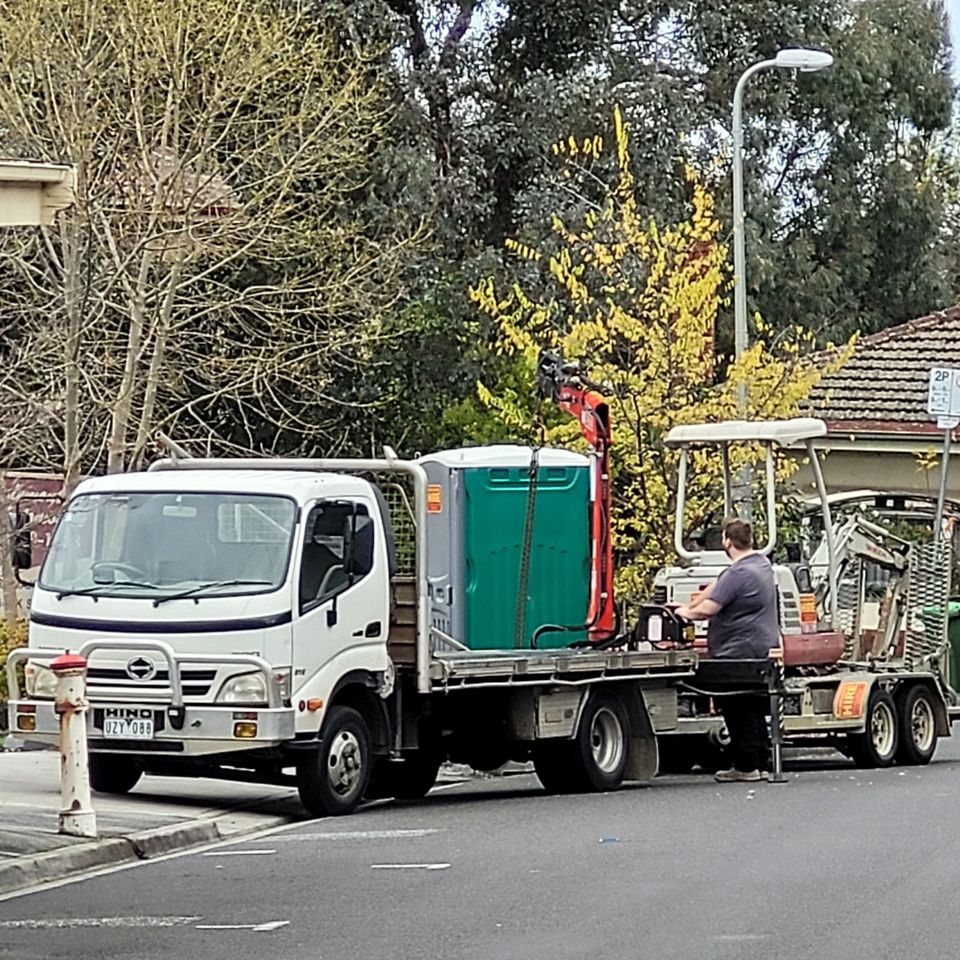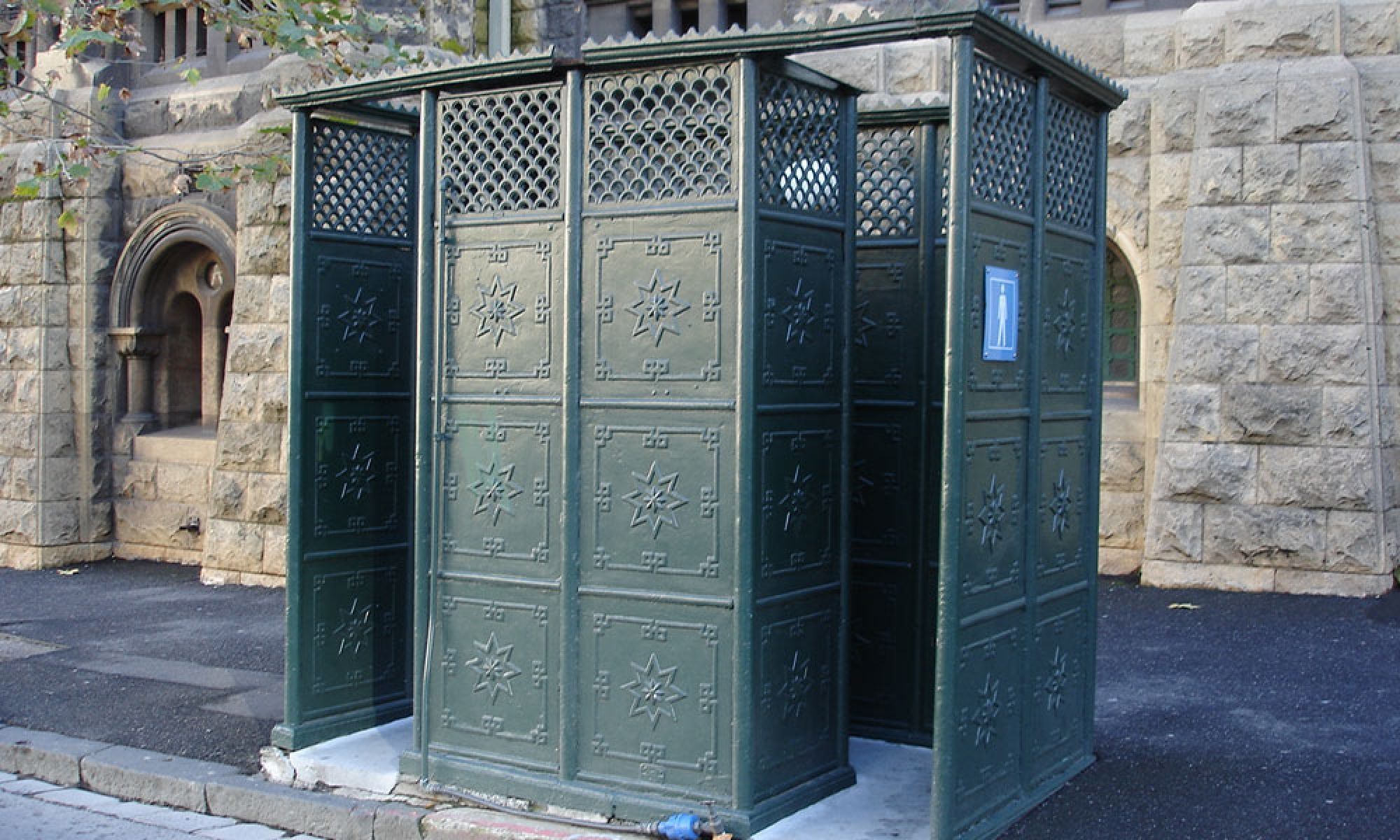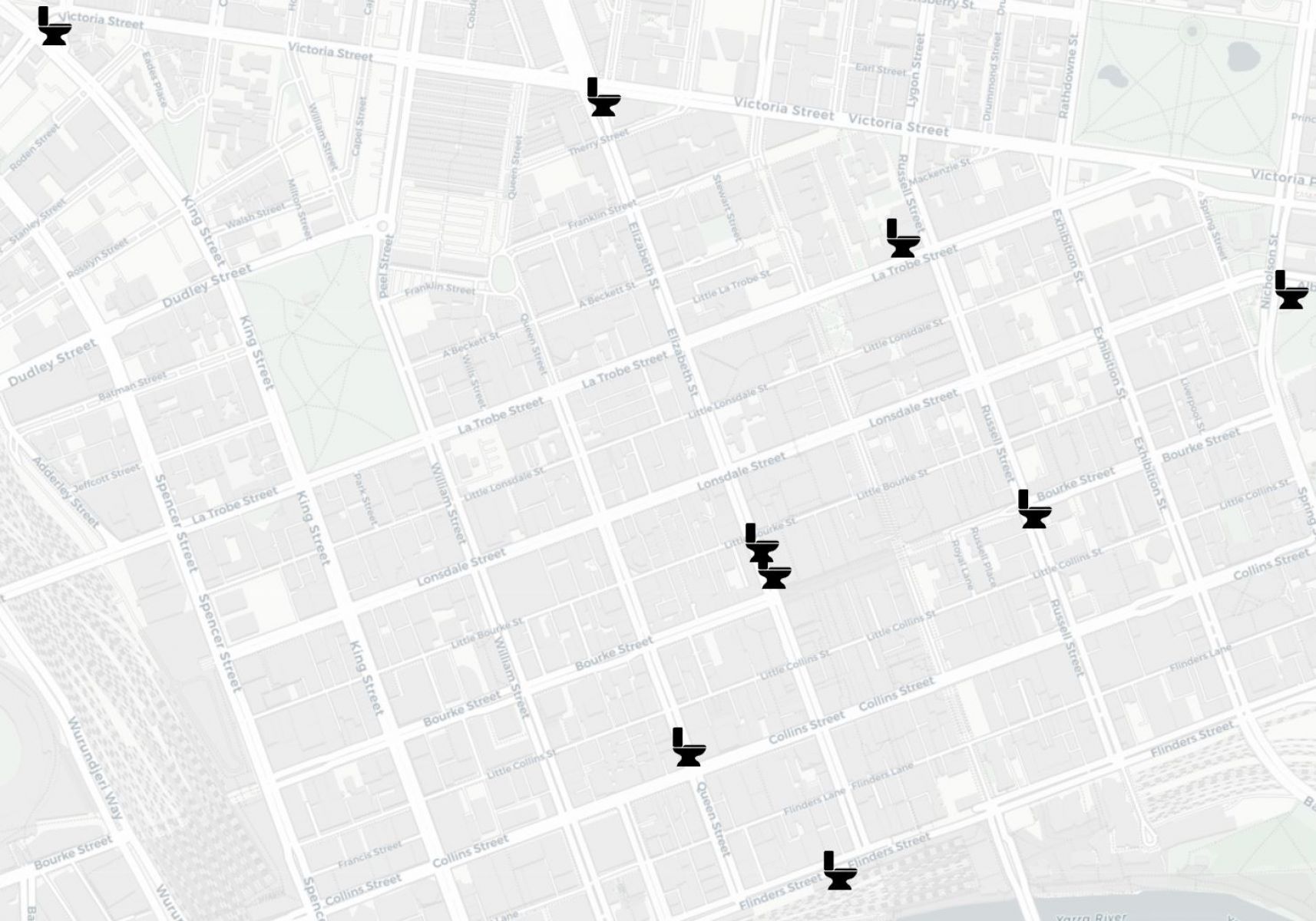We Are Not Alone On Public Toilets

Messages reach us that other areas are suffering the same indignity of closed "public" toilets.
Exhortations from politicians and well-intentioned environmentalists to use public transport sound hollow when the travelling public's basic needs are ignored.
Big money is spent on parking near stations, ticketing systems, level crossing removal etc - but the basic toilet access needs of every traveller is avoided.
Not ignored mind you - they know full well what they are doing by closing access to publicly funded facilities.
It is totally appropriate that the transport authorities make provision for staff toilets for their mobile staff.
It is totally appropriate that these toilets are cleaned and maintained.
Once we cross the threshold of having accessible, appropriate, sufficient, maintained toilets for a small number of staff then it becomes intolerable to deliberately exclude the fares paying, tax paying public from those same facilities.
What’s the deal with toilets at unstaffed stations?
Let me give you an example.
"The old Bonbeach Station had some toilets, but they were locked 24/7. I only ever saw them unlocked once in the 8 years I used the station, because some staff needed the loo. From memory, there was no signage indicating a toilet was there, and I only learnt of its existence because I asked the staff person who used it.
The new Bonbeach Station also has toilets. These are also locked 24/7, but unlike the old ones they have clear signage stating “staff only.” One would assume that since they open directly onto the platform they would be for passengers, but no."
Dramas out West
Things are no better where lines and stations are upgraded. This fiasco is a real horror story of wasted public money, as well as being simply an offensive to providing for the travelling public.
And it is not just a railways matter.
The Fairfax newspaper journos found that the trams and even Melbourne City Council were part of the movement against the public needs.
As mentioned in our recent article the most offensive aspect of the local government role in the public toilet matter is the hypocrisy.
Local government is very prescriptive in obliging the hospitality and entertainment industries to provide - by formula - toilets for patrons.
When it comes to public toilets in public places there is great reluctance to meet public need.
Is there a "behind the scenes" cold war between State Government utilities and local government over responsibility for public toilets?
Is local government for its part trying to push responsibility to a hapless private sector?
All the fine sentiments about exercising, socialising and the mental health dividend of having people outdoors are futile if there is a deficit of public toilets to support people being outdoors.
A bit of history of Melbourne's public toilets
(Courtesy of Nilss research)
https://www.heritage.vic.gov.au
‘Flush’ with history
Catering to No 1’s and No 2’s since 1859
19 May 2021
What do you do if you’re busting for a toilet but can’t find one? Spare a thought for those living in 1850s Melbourne, when there wasn’t a public toilet to be found.
Instead, the only toilets people could turn to were in hotels and markets, or too often the city’s secluded corners and hidden laneways.
This steady stream of public urinators led to a number of complaints to Melbourne City Council about the ‘indecent nuisances’ being committed in public places.
It led to Melbourne’s first public toilet being unveiled in 1859, just outside the Post Office (now H&M) on Bourke Street.

But the high was short-lived, with prudish 19th century attitudes forcing its relocation to a less prominent spot on the south side of Flinders Street, near King Street.
Yet while men now had a place to go, it wasn’t until 1902 that women would be afforded the same right. Women were then permitted to use the city’s first underground public toilets on Russell Street, just south of Bourke Street.
Made of iron and timber, the first public toilets were built directly over the city’s gutters so the waste could flow into the Yarra River. It was said the gutter location allowed a man ‘to use the facility and hold onto his horse at the same time’.
Despite the need for public toilets, complaints were frequent. There were some concerned they were a haunt for ‘objectionable characters’.
In a bid to counter this unwanted behaviour, iron spikes were fitted to the stonework surrounding the Lonsdale and Stephen (Exhibition) Street toilets to discourage these ‘characters’ from loitering nearby.
But with the construction of the city’s underground sewerage system in the 1890s, urinals began popping up all over the city. By 1911, there were 71 urinals with 210 stalls scattered throughout Melbourne. Of these, at least 40 were made of cast iron, and only eight remain today.

Remaining cast iron toilets in Melbourne
These surviving toilets are heritage listed because of their historical and architectural significance to the state of Victoria.
It’s something to keep in mind if you ever happen to find yourself in Melbourne, and in need.
Well said, Sir
The Sydney Morning Herald, 16.05.2011
Oh, the humanity
I REMEMBER when all railway stations were staffed by humans. It was called Victorian Railways, and we got to know the staff, and we all knew the station master. We and their kids used to go to the same school.
Then we kids grew up and we all became educated. Victorian Railways disappeared and so did the station staff, and the station masters. I don't know who owns or controls our railways any more.
I see we're going to have armed guards looking after the stations. Does that mean us too, or just the stations? The guards are going to have toilets built for them because there aren't any staff nor open public toilets at stations. That'll be good for the guards, but not for passengers.
Who do we speak to to voice our disapproval of what's happened to our railways? We should tell them we want all our stations to be fully staffed, with a station master, and we want them to be ''humans''.
Bruce Fisher, Forest Hill The Sydney Morning Herald, 16.05.2011
Oh, the humanity
I REMEMBER when all railway stations were staffed by humans. It was called Victorian Railways, and we got to know the staff, and we all knew the station master. We and their kids used to go to the same school.
Then we kids grew up and we all became educated. Victorian Railways disappeared and so did the station staff, and the station masters. I don't know who owns or controls our railways any more.
I see we're going to have armed guards looking after the stations. Does that mean us too, or just the stations? The guards are going to have toilets built for them because there aren't any staff nor open public toilets at stations. That'll be good for the guards, but not for passengers.
Who do we speak to to voice our disapproval of what's happened to our railways? We should tell them we want all our stations to be fully staffed, with a station master, and we want them to be ''humans''.
Bruce Fisher, Forest Hill
(from Nilss)
Member discussion